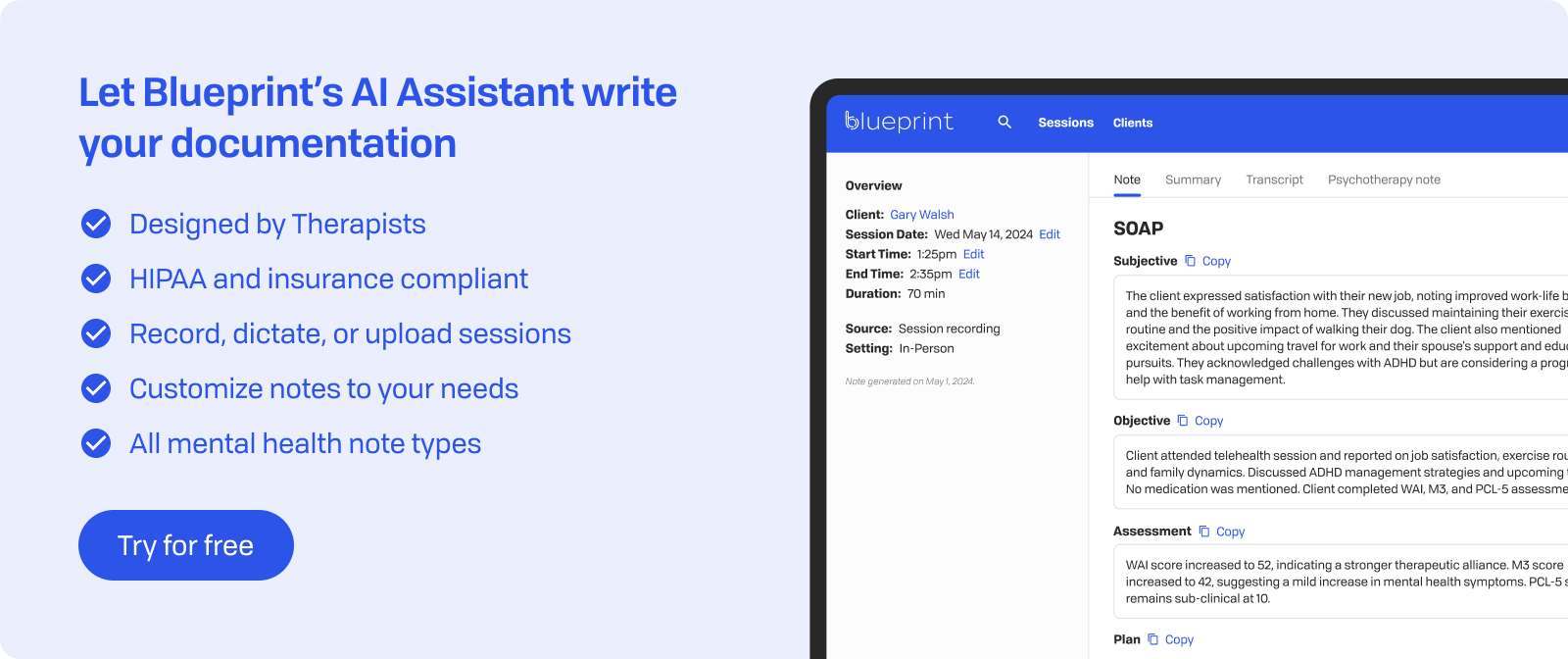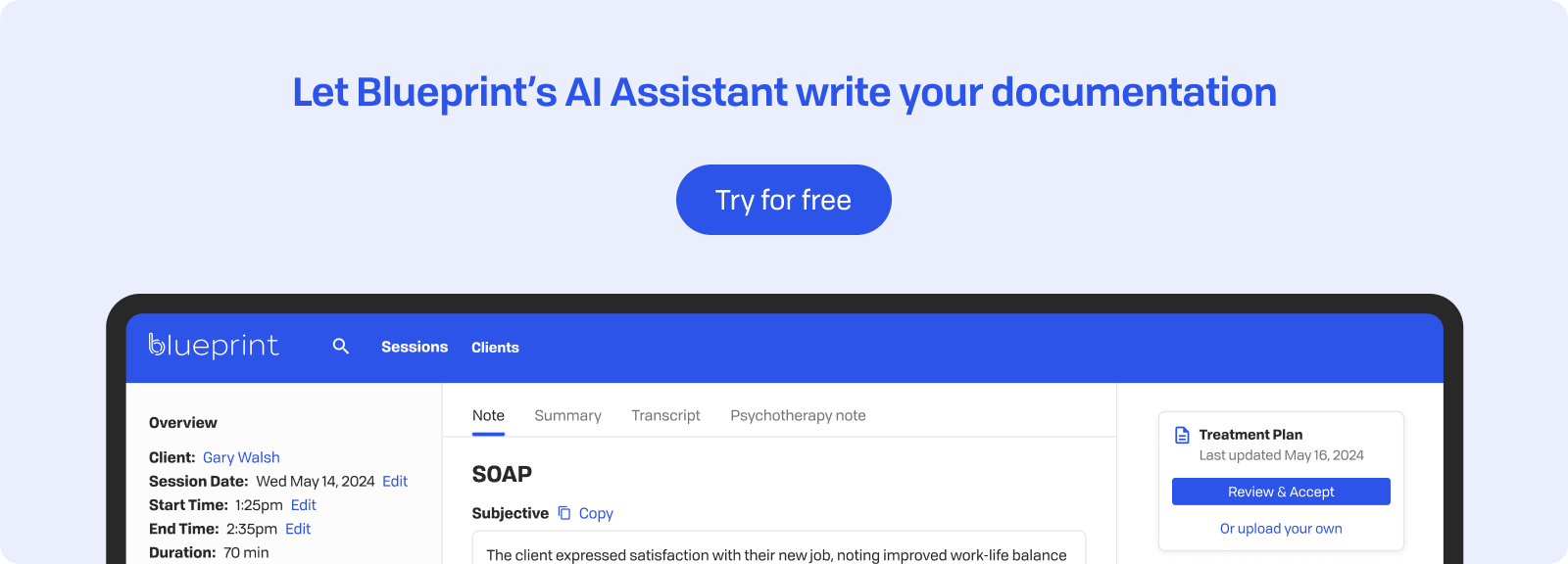In Brief
The landscape of workplace mental health is changing quickly. Companies now see supporting employee well-being as not only ethical but also vital for their success. This change opens new doors for mental health professionals.
Employee assistance programs (EAPs) are moving beyond just crisis hotlines and referral services. Innovative organizations now embed therapists into their workplace culture. This integration changes how companies handle mental health support.
Therapists looking for new practice opportunities will find unique challenges and rewards in corporate settings. The demand for workplace mental health services is growing rapidly. Learning about this field can help clinicians decide if corporate therapy fits their professional goals.
Defining Corporate Therapy
Corporate therapy provides mental health services directly within or for workplace settings. Unlike traditional EAPs that focus on external referrals, corporate therapists work closely with organizations. They offer on-site counseling, group sessions, workshops, and organizational mental health consultations.
This practice differs significantly from EAPs and private practice settings. Corporate therapists balance individual client needs with organizational goals and culture. They often address work-related stress, team dynamics, and performance-related mental health issues.
Three main goals drive corporate therapy initiatives: improving accessibility, reducing mental health stigma, and promoting overall workplace well-being. Accessibility means bringing services directly to employees, removing barriers like transportation or scheduling conflicts. Reducing stigma involves normalizing mental health discussions through visible, integrated support systems. Promoting well-being goes beyond crisis intervention to include preventive care, resilience building, and creating psychologically safe work environments.

Benefits of Corporate Therapy for Employees and Employers
Corporate therapy significantly benefits both employees and organizations by improving workplace mental health. Employees who participate in workplace therapy programs often experience less stress and burnout while learning better ways to handle professional challenges. This support leads to greater job satisfaction and stronger emotional resilience.
For employers, the advantages become apparent through several key metrics:
- Reduced turnover rates: Employees with access to therapy tend to stay with their organizations longer, reducing recruitment and training costs.
- Lower absenteeism: Early intervention helps prevent mental health issues from escalating into extended leave.
- Enhanced productivity: Mentally healthy employees show improved focus, creativity, and problem-solving abilities.
- Improved team dynamics: Therapy enhances emotional intelligence and communication skills, strengthening workplace relationships.
Corporate therapy also has positive benefits for organizational culture. When companies support mental health, they create environments where employees feel valued beyond just their productivity. This cultural shift reduces stigma around seeking help and promotes proactive wellness behaviors.
Employees receiving evidence-based psychotherapy through workplace programs have higher retention rates.The comprehensive support systems put in place the corporate therapists address not only individual concerns but also interpersonal conflicts and team challenges that can affect workplace satisfaction.
Organizations implementing corporate therapy programs report stronger employer-employee relationships and more empathetic leadership. Managers who understand mental health principles lead more effectively, fostering teams where members support each other through challenges instead of contributing to workplace stress.
Therapist Opportunities in Corporate Settings
Corporate therapy offers many avenues for mental health professionals to broaden their practice. Companies increasingly understand that supporting employee mental health benefits their overall performance, opening up various opportunities for therapists interested in this expanding area.
Working directly as an in-house clinician provides one of the most stable options. Organizations hire therapists as full-time staff members to offer ongoing support, crisis intervention, and preventive care. These roles often come with competitive salaries, comprehensive benefits, and the opportunity to influence organizational mental health policies from the inside.
Independent contracting allows flexibility for therapists who prefer to keep their independence. Options include:
- Per-session contracts: Offering individual or group therapy on specific days
- Project-based work: Creating mental health programs or conducting organizational assessments
- Retainer agreements: Providing ongoing consultation and support services
- Platform partnerships: Collaborating with corporate wellness platforms that connect therapists with multiple organizations
Facilitating group sessions is another key opportunity. Therapists conduct workshops on stress management, resilience building, communication skills, and emotional intelligence. These programs often reach larger audiences than individual therapy, increasing your influence while diversifying income streams.
Mental health training programs for managers and HR professionals are gaining popularity. Therapists create and deliver courses that help leaders identify mental health concerns, respond appropriately, and foster psychologically safe environments.
Career advancement in corporate settings goes beyond traditional therapy roles. Seasoned corporate therapists often progress to director positions managing entire wellness programs, consulting for various organizations, or focusing on executive coaching. This variety enhances professional skills while opening doors to leadership opportunities not typically available in traditional practice settings.

Challenges and Ethical Considerations
Working in corporate therapy brings a set of ethical complexities that differ from traditional practice settings. Being aware of these challenges helps therapists prepare for successful roles in workplace mental health while maintaining professional integrity.
Confidentiality becomes particularly intricate in corporate environments. Unlike private practice where the client relationship is clear, corporate therapists must determine who the actual "client" is—the individual employee or the organization paying for services. This dual responsibility creates situations where:
- Information boundaries blur: Deciding what can be shared with HR or management while safeguarding employee privacy
- Reporting obligations conflict: Balancing mandatory reporting requirements with organizational policies
- Documentation challenges arise: Confirming with the employer and employee about who owns the mental health and substance abuse records and implementing policies that uphold confidentiality can help maintain therapeutic trust.
Dual relationships present significant ethical concerns. Corporate therapists often interact with clients in multiple contexts—as their therapist during sessions and potentially as a trainer or educator on mental health content within the organization. These overlapping roles can compromise therapeutic objectivity and create opportunities where confidentiality may be compromised if a therapist is not actively attending to this risk. .
Corporate influence on therapeutic boundaries requires careful handling. Organizations might pressure therapists to prioritize productivity metrics over clinical needs or to adjust treatment approaches to fit company culture. Therapists must advocate for evidence-based practices and their own clinical judgment while respecting workplace constraints.
Insurance and liability considerations add complexity. Corporate therapy arrangements mayinvolve unique billing structures, from direct employer payment to hybrid models combining insurance and corporate funding. Therapists need clear contracts outlining liability coverage, malpractice insurance requirements, and protocols for handling workplace-related incidents that might arise during treatment.

Practical Skills and Competencies for Therapists in Corporate Therapy
Success in corporate therapy means adapting traditional clinical skills to fit workplace contexts. Therapists need to apply evidence-based approaches in practical, time-efficient ways that work for business-minded clients dealing with work-specific issues.
Clinical adaptations for workplace settings include:
- Modified CBT techniques: Addressing thought patterns, performance anxiety, and professional relationships that are specific to the workplace rather than general life issues.
- Brief solution-focused interventions: Focusing on rapid problem-solving that aligns with corporate timelines and productivity goals.
- Mindfulness practices: Teaching quick stress-reduction methods that employees can use between meetings or during stressful situations.
Group facilitation is key in corporate environments. Therapists lead workshops on emotional intelligence, conflict resolution, and team dynamics. These sessions involve managing diverse personalities while maintaining therapeutic boundaries and ensuring everyone feels psychologically safe.
Understanding organizational psychology helps therapists see how workplace culture, leadership styles, and systemic factors affect employee mental health. Familiarity with occupational stress models allows for more effective interventions targeting burnout, role ambiguity, and work-life balance.
Communication with non-clinical stakeholders requires:
- Translating clinical concepts: Explaining mental health principles in business-friendly language without oversimplifying.
- Data-driven reporting: Presenting outcomes using metrics that show return on investment while protecting individual confidentiality.
- Collaborative consultation: Working with HR and leadership to create policies that support mental health without compromising therapeutic relationships.
Therapists need to uphold clinical ethics while meeting corporate expectations. This includes advocating for evidence-based practices when organizations seek quick fixes and protecting client confidentiality when management requests inappropriate information.

Integrating Corporate Therapy Into Your Practice
Private practice therapists can move into corporate work through careful planning and targeted outreach. This shift involves transitioning from individual client management to grasping organizational needs and workplace dynamics.
Effective approaches to pitching services include:
- Research-based proposals: Present data showing the return on investment of workplace mental health programs, such as reduced absenteeism and improved retention rates.
- Pilot program offerings: Suggest starting with small-scale initiatives like stress management workshops or quarterly wellness sessions.
- Customized solutions: Adapt services to specific industry challenges or company culture instead of offering generic packages.
Networking is key for breaking into corporate therapy. HR professionals often act as gatekeepers for wellness initiatives, so attending industry conferences can help create valuable connections. Wellness coordinators appreciate therapists who understand both clinical excellence and business metrics. Leadership teams respond well to professionals who speak their language—focusing on productivity, engagement, and measurable outcomes.
Building comprehensive service packages attracts corporate clients:
- Tiered offerings: Basic EAP support, enhanced on-site counseling, and premium executive coaching options.
- Flexible delivery models: Combine in-person sessions, virtual therapy, and asynchronous resources.
- Integrated programs: Connect individual therapy with team workshops and manager training for holistic support.
- Outcome tracking: Include regular reporting on usage rates and overall wellness metrics.
Start small with one corporate client, deliver exceptional results, and use that success story to grow your corporate therapy practice. Word-of-mouth is powerful in corporate settings where HR professionals often share vendor recommendations across their networks.
Key Takeaways
Corporate therapy offers a significant opportunity for mental health professionals looking to expand beyond traditional practice settings. This field allows therapists to reach employees who might not seek therapy on their own, reducing access barriers and normalizing mental health support in everyday work environments.
What sets corporate therapy apart from individual practice is its potential for systemic impact. Working within organizations provides therapists the chance to influence workplace culture, shape mental health policies, and create environments that support psychological well-being on a larger scale. This broader reach enhances the positive effects of therapeutic work across entire teams and departments.
Key considerations for success include:
- Ethical preparedness: Grasping the complexities of confidentiality, dual relationships, and corporate pressures before entering this field
- Skill adaptation: Adjusting clinical approaches for workplace contexts while maintaining therapeutic integrity
- Business acumen: Understanding the language of ROI, productivity metrics, and organizational goals
- Flexibility: Offering various service models from individual counseling to group workshops and executive coaching
Corporate therapy continues to evolve with technology integration, data-driven approaches, and personalized wellness solutions. AI-powered assessments, virtual reality experiences, and hybrid delivery models are becoming common offerings. Organizations increasingly seek therapists who can blend traditional clinical skills with modern approaches that meet workplace demands.
Success in corporate therapy demands balancing clinical expertise with business awareness. Therapists who achieve this balance find satisfying careers that combine financial stability, professional growth, and the opportunity to make meaningful changes in how workplaces handle mental health.











